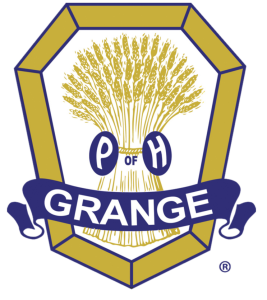HAVE qUESTIONS about surgery?
Having questions about an upcoming surgery is expected. Some Doctors, a research institute, patients, family members, caregivers and Grangers have used their personal experiences to help create this website.
The National Grange and medical technical experts have developed two Guides which can help you prepare for surgery and think about your future options.
You will find a variety of information on pre-surgery, post-surgery and planning for your future within this website. There are questions that are important for anyone planning a surgical procedure. Circle the questions you want to ask, and/or write your own questions. It’s okay if you do not want to ask your Healthcare Provider some of these questions. You can ask your doctor/surgeon whatever you feel is important to you. Tell the doctor/surgeon how much or how little you want to them to know and ask the surgeon to explain anything you don’t understand.

“I’m glad I learned the right questions to ask, the important decisions to make and how to best care for my grandfather.
– Rhonda Allen
YES, you do have options for treatment. We hope this website helps you and your surgeon decide what’s right for you.
hEALTHCARE sYSTEM IN RURAL AMERICA
the problem
Rural America is underserved by the nation’s healthcare system. There are fewer doctors, especially specialists, per capita, many rural hospitals are in danger of closing, incomes are lower and employers less likely to provide health insurance, distances to care are greater, and there is less broadband access to medical information and virtual office visits.
Older rural residents requiring surgery have less access to care and may be less informed on how to participate in their care and about treatment options.
the solution
The Grange, founded in 1867, is the largest and best-known community organization in rural America; it conducts a variety of social, service, and educational programs and is a leading advocate for rural interests.
The National Grange has developed and is disseminating a user-friendly Pre-Surgery Guide – Question Prompt List that can be utilized to talk to your doctor/surgeon and Planning for My Future Guide that can be utilized to talk with your spouse/partner, family, caregiver to help provide your plans and desires for your future.
empower
Empower rural surgery patients to become more engaged in their own care and to obtain care in line with their personal values and preferences to improve their life span.
inform
Inform patients of what to expect after surgery, allowing more time for planning and informing caretakers and family about aftercare both short-term and long-term.
prepare
Prepare older rural patients with the ability to make the best pre- and post-surgical decisions based on a deeper understanding of their current health and physical condition.
REGIONAL CONTACTS |
||||
|---|---|---|---|---|
| Northeast | Southeast | Midwest | Great Plains | Western |
|
Riverton Grange #169 Dave Roberts
|
St. Johns Grange #729 Jane Cauthen Melanie Hudson |
Turkey Hill Grange #1370 Charles & Sophie Treser Tami Hughes |
Alamo Grange #1446 Samantha Wilkins |
Walterville Grange #416 Paula Herrick |
Contact
Need additional assistance? Contact us:
National Contact: Joan C. Smith
Phone: (571) 662-7220 | Email

This program was partially funded through a Patient-Centered Outcomes Research Institute (PCORI) Eugene Washington PCORI Engagement Award (EADI #30051). The statements in this website are solely the responsibility of the authors and do not necessarily represent the views of the Patient-Centered Outcomes Research Institute (PCORI), its Board of Governors or Methodology Committee.



